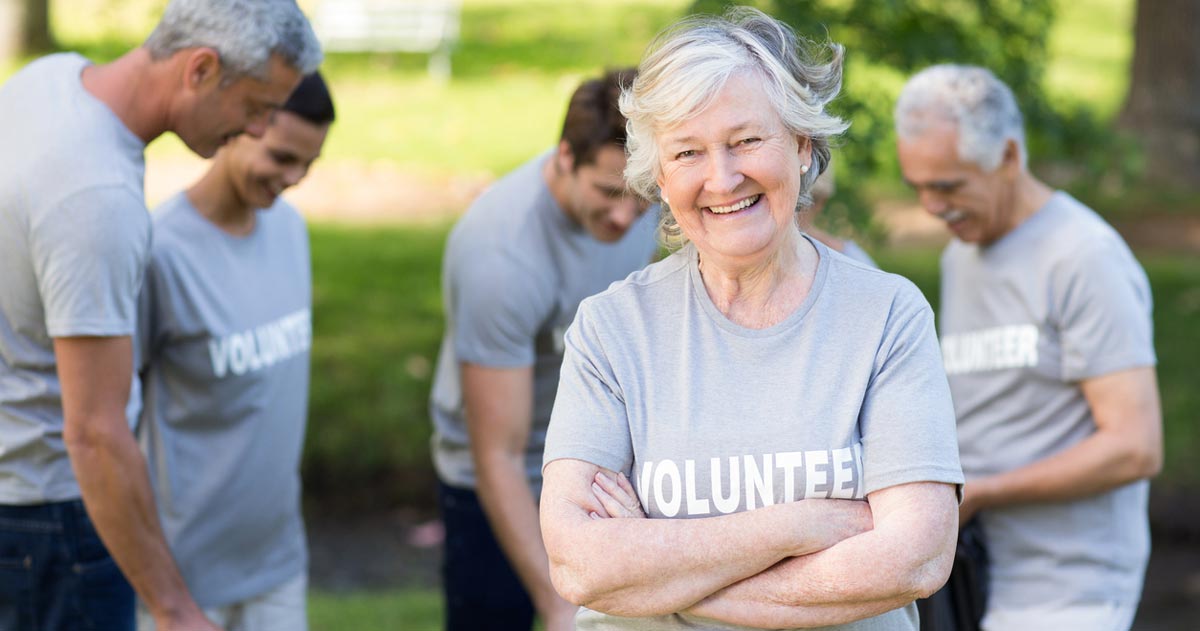Early in life, it’s easy to find purpose, in fact, it actually finds us in school, careers, and raising families. In retirement, however, having so much time and so few things to fill it may become boring, even tedious. Seniors often feel they no longer have a purpose; that thing that kept them on their toes, striving to improve and to always do their best. That reason to get up and go is gone and many seniors feel the loss of the gratification found in a job well done. But living with purpose doesn’t have to end. Take a look at the importance of purpose and how to find it in retirement.
What purpose offers seniors
Recent research has looked at the ways seniors benefit from having a purpose and the results are all good. In one study published in 2017, researchers found that having purpose helped seniors maintain better grip strength and walking speed, two indicators of decline. Another study published in 2012 looked at how having purpose affects the risk of Alzheimer’s disease and cognitive impairment and found the risk and effects of the disease were reduced in seniors with higher levels of purpose in their lives. And yet another study published in 2014 found that people who lived purposeful lives lived longer than those who did not.
Research aside, however, having a purpose can help seniors stay engaged with others, maintain personal appearance and hygiene, and exercise their brains and bodies. All of these are not only essential to good health and well-being, they keep seniors active and feeling good about themselves, which are key to living your best life.
Finding purpose in your senior years
Bookstores are full of books on the subject of “being purposeful” but achieving it is easier than it might seem. In truth, those who have raised families and had successful careers have already accomplished it. So, in retirement, once those responsibilities are in the past, it’s time to reassess and decide what the next phase of life will hold.
Start with all those things you always wanted to do but never had the time. Think about:
- What you are good at: Do you have a gift for communicating? Maybe you are a great cook, have a knack for bringing people together or organizing events. Ask your friends if you can’t think of anything, they will know!
- What experience you have to share: Not only your career experience but consider hobbies like gardening, woodworking, sewing or knitting, as well. Don’t forget years of child-rearing and parenting and all you learned along the way that could help others.
- What you are passionate about: Everyone has one or two things in life that light a fire under them. Perhaps it’s the environment or animal rights or local politics. Or maybe you care deeply about racial justice, arts in the community, or living a healthy lifestyle. No matter what your passion is, there’s a way to make it your purpose.
- What makes you happy: Last, but by far not least, what brings you happiness is essential to finding your purpose. Do you love reading to children, being in nature, or helping others? Even fixing up old cars or dabbling in carpentry can be transformed into a purpose.
For a more detailed look at finding purpose in life, check out the Greater Good Magazine article, “Seven Ways to Find Your Purpose in Life.”
Finding your niche
The beauty of finding purpose is that every senior has lived a unique life and thus has different outlooks, passions, gifts, and desires. Sometimes it’s just a matter of figuring out how to put your purpose to work. The most obvious is to volunteer. For seniors, there are plenty of ways to find opportunities including on AARP’s website or try justserve.org to search by city, state or zip code. Other possibilities include large charities such as Habitat for Humanity, United Way, or the American Red Cross operating in the community.
Active seniors in independent living communities may also find they can fulfill their purpose right at home, by assisting other residents who need a little help or just a friend, or by sharing their talents in workshops or at events like musical reviews.
Of course, there are also plenty of online opportunities from making YouTube videos to share to manning a crises text line, to furthering the good works of sites like Project Gutenberg. Find out more ways to be purposeful in the dosomething.org blog, “9 Places to Volunteer Online (And Make a Real Impact).”
At Ganton’s Countryside, we make every day purposeful by serving our residents and helping them lead purposeful lives too. For more information about Countryside, please call Margaret Nagel at (517) 206-5000 or download our brochure to learn about our care levels, cost, and amenities.


